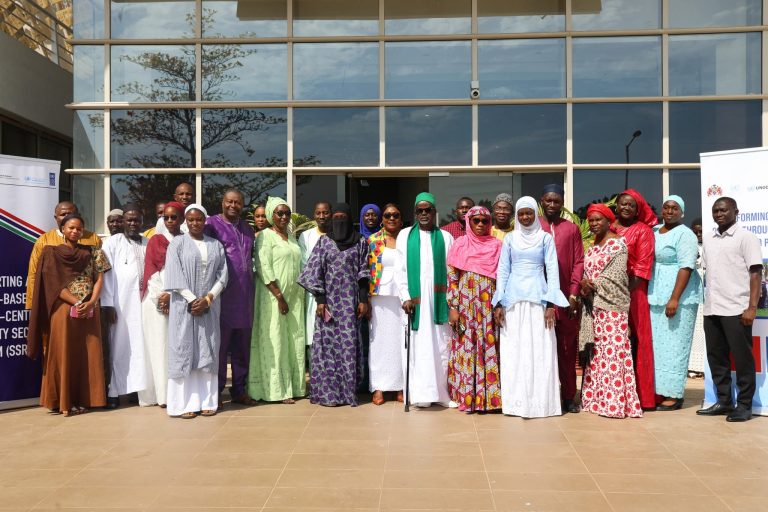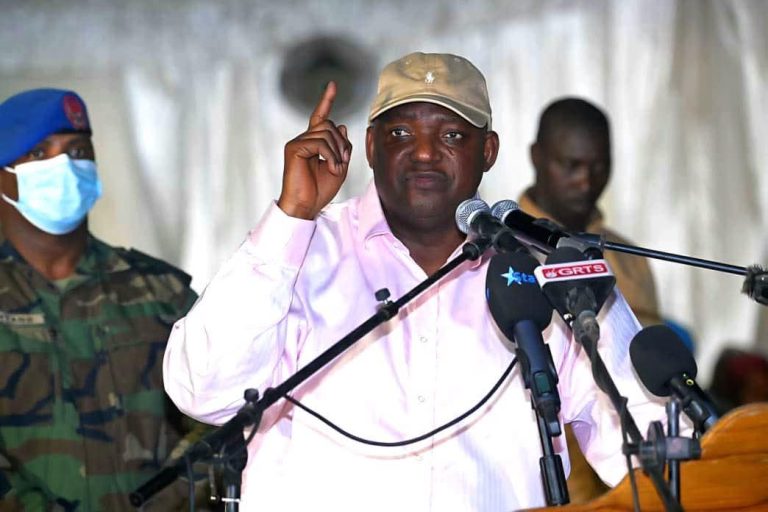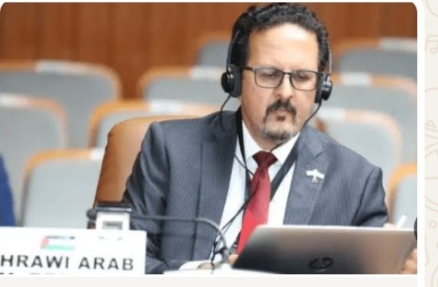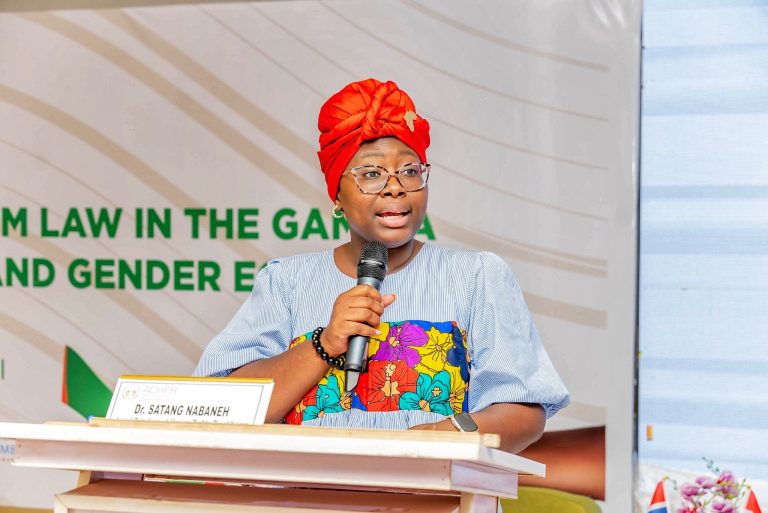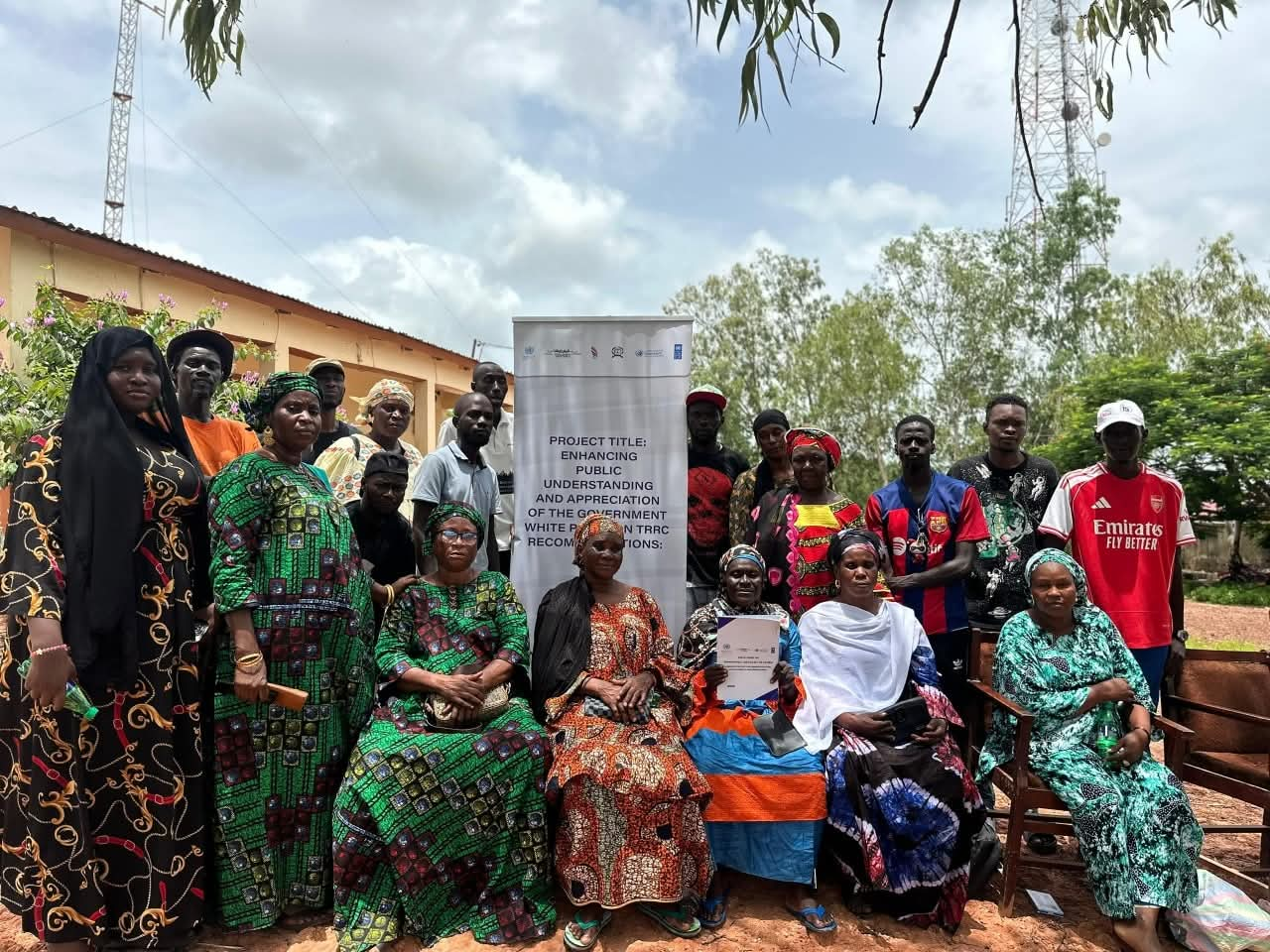
On the second day of its nationwide outreach, the Association of Non-Governmental Organizations (TANGO), in partnership with the United Nations Development Programme (UNDP), advanced its transitional justice campaign in Brikama Ba, fostering deeper grassroots engagement around memorialization, accountability, and reparations.
Held at the Brikama Ba Community Hall, the event convened local leaders, survivors of past abuses, youth advocates, religious figures, and civil society representatives. Building on the momentum from the Diabugu launch, the gathering reinforced the importance of inclusive, community-led implementation of the Truth, Reconciliation and Reparations Commission (TRRC) recommendations.
A key moment was the formal presentation of the transitional justice policy brief to Hon. Sulayman Sawaneh, Chairman of the Janjanbureh Area Council. This symbolic handover marked a shift toward decentralizing justice efforts and empowering local governance structures to lead in truth-telling, healing, and institutional reform.
Participants shared moving testimonies and reflections, emphasizing the need for memorialization efforts that honor local histories and cultural values. Jabou Foon, one of the attendees, expressed appreciation for the initiative, noting that the sensitization efforts significantly deepened community understanding of the transitional justice policy. “We thank TANGO for engaging the rural community,” she said.
Echoing this sentiment, Sainey Jassey highlighted the clarity gained around the TRRC white paper and its implementation. “Now we understand how the government is applying the recommendations, it’s no longer abstract,” he remarked.
The Brikama Ba outreach marks a pivotal step in bridging the gap between national policy and local ownership. As the caravan heads next to Soma, the message remains clear: transitional justice is not a distant ideal, it is a living, evolving process shaped by the voices and values of Gambians across the country.
Copied
Source: Star TV

